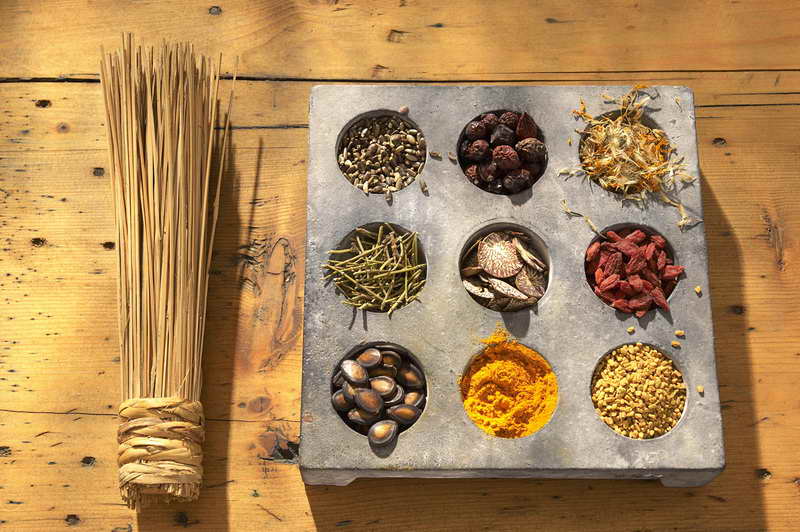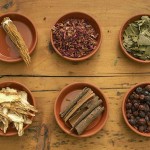Imam JaʿFar Al-sadeq and Herbal Medicine
 Imam JaʿFar Al-sadeq and Herbal Medicine
Imam JaʿFar Al-sadeq and Herbal Medicine
Imam Jaʿfar al-Ṣādeq’s work on medicine (Ṭebb al-Emām al-Ṣādeq) belongs to a genre of traditional herbal medicine attributed to the Shiʿite imams and known as the Medicine of the imams (ṭebb al-aʾemma), whose salient figure is Imam Jaʿfar al-Ṣādeq. Imam Ṣādeq’s narrated dictums (Hadith) are central to Shiʿite medical literature as it enhanced, in the course of time, the spiritual image of the imam in popular religion. Imam Jaʿfar, indeed, was not the only imam who contributed to Shiʿite traditional medical wisdom, but the variety of his ethical instructions on the priorities of foods and drinks has significantly extended the chapter of “eating and drinking” (bāb al-aṭʿema wa’l-ašreba) in Shiʿite jurisprudence.
IMAM AL-ṢĀDEQ’S POPULAR MEDICINE
Imam Jaʿfar al-Ṣādeq’s medical traditions are concerned with three spheres: a variety of beneficial and harmful food items and drinks; some commonly known diseases and their remedies; corroboration of some traditional methods of treating illness.
Useful and harmful foods and drinks. Beneficial fruits reportedly mentioned by Imam al-Ṣādeq include apple (10 Hadiths), dates (7 Hadiths), quince (6 Hadiths), pomegranate (5 Hadiths), citrus fruits (4 Hadiths), pear, walnut, and raisins (3 Hadiths each), grape, melon, and olive (2 Hadiths each).
Vegetables, legumes, and grains with health benefits reportedly recommended by Imam al-Ṣādeq include barley, lentil, and rice (16 Hadiths), rice (13 Hadiths), wild chicory (5 Hadiths), eggplant (5 Hadiths), black cumin and chard (4 Hadiths each), onion (3 Hadiths), radish, harmal peganum, marshmallow, turnip, beans, and pumpkin (2 Hadiths each), carrot, lettuce, leek, garlic, and frankincense (1 Hadith each).
Imam Jaʿfar al-Ṣādeq is also credited with naming a number of juices and beverages as being beneficial to one’s good health. They include water (12 Hadiths), milk, and vinegar (7 Hadiths each), honey (3 Hadiths), and rose water Hadith.
Beneficial kinds of meat and other animal products, reportedly remarked by Imam al-Ṣādeq, include general references (13 Hadiths), fish (7 Hadiths), egg (4 Hadiths; see ʿAqil, pp. 268, 278, 446-47, quoting Majlesi, LXII, pp. 190, 207-8, 212, 215, LXIII, pp. 46-47; Ḥorr ʿĀmeli, XXV, pp. 39-41, 44-45, 77). Harmful drinks and foods which cannot be used even for medical treatment include alcoholic beverages, specifically wine (13 Hadith), blood, pork, and dead meat (1 Hadith each).
Commonly known diseases and their remedies. In cases of certain pain in the waist, honey and cumin are advised (3 Hadiths). In cases of certain stomach pains, honey, cumin, rice, and sumac are advised (4 Hadiths). For treating certain hemorrhoids, it is advised to eat rice, leek, especially white leek (3 Hadiths). In case of head cold, among other things, violet oil is advised (3 Hadiths). For treating tapeworm, freckles, throat pain, cough, chest pain, nightmares or anxiety during sleep, herbal medicine are mostly advised (1 Hadith each) . For treating fever, in general, twenty-one Hadiths are quoted in which footbath and eating fruits such as apple and, on occasion, onion and honey are advised. For the remedy of eye disease, washing, cleaning, nail-cutting, and eating specific foods are advised (9 Hadiths).
Methods of treating some illnesses. Imam Jaʿfar al-Ṣādeq has corroborated some traditional methods of treating illness and health problems. He has sometimes supported his instructions with God’s blessing and šariʿa law; treatment of the eyes with kohl (9 Hadiths); vento treatment (ḥejāma) or art of cupping (39 Hadiths); cauterization (kayy) or burning the skin (1 Hadith); cutting down on food (11 Hadiths); taking a bath (8 Hadiths).


